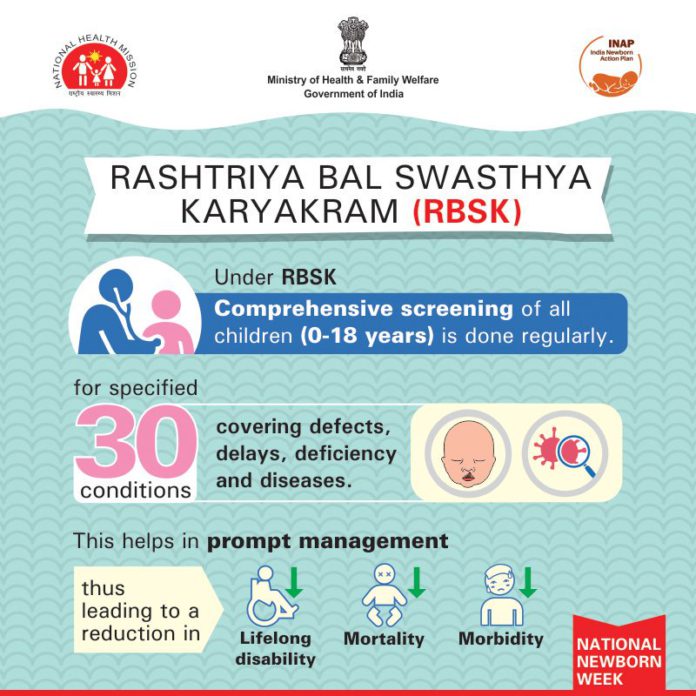New Delhi (NVI): India is observing National Newborn Week from November 15 to achieve the goal of reducing under-five mortality to 20 or less per 1000 live births by 2035, which can only be attained by the specific efforts to reduce newborn mortality and morbidity.
Every year, India marks Newborn Week from November 15 to 21 to raise awareness about the importance of newborn care for child survival and development, as about 2.6 million babies die every year within a month and most in the first week. Besides, the same number of stillbirths occur every year across the country.
Meanwhile, the government under the Rashtriya Bal Swasthya Karyakaram (RBSK) is regularly conducting comprehensive screening of children between the age group of 0-18 years which is leading to a reduction in lifelong disability, mortality and morbidity.
According to experts, neonatal period (the first 28 days of life) is the crucial period for child survival which carries the highest risk of deaths per day than any other period during childhood.
Maternal nutrition plays a crucial role as a healthy diet of mother will ensure a healthy baby. Infectious diseases and neonatal complications are the leading causes of mortality among children under 5.
The first month of life is also a foundational period for lifelong health and development. Healthy babies grow into healthy adults who can thrive and contribute to their communities and societies.
Labour, birth and the immediate postnatal period are the most critical for newborn and maternal survival. The effective health measures provided at birth and during the first week of life can prevent around 75% of newborn deaths.
–ps











